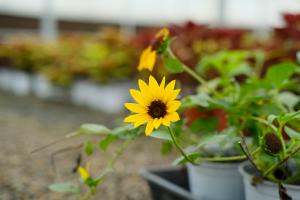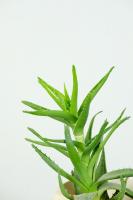What Kind of Plant Food for Tomatoes
Tomatoes are among the most favorite fruits to grow in a backyard garden. These sweet, juicy, and versatile treasures are not only easy to grow, but also provide a plethora of benefits to the human body. However, the key to having a bountiful tomato harvest is to ensure that their nutritional needs are well catered to through the right plant food. In this article, we'll discuss the types of plant food that are best for tomatoes.
Organic Plant Food
Organic plant food contains no synthetic or harmful chemicals, making it the most suitable option for health enthusiasts and people who are conscious about the environment. Examples of organic plant foods for tomatoes include compost, worm castings, manure tea, and fish emulsion. You can make your own organic plant food by mixing decayed plant materials, kitchen scraps, and coffee grounds.
Inorganic Plant Food
Inorganic plant food is typically made from synthetic or chemical substances. Inorganic plant food for tomatoes contains a higher concentration of essential nutrients compared to organic plant food, and it's ideal for people who want a fast-growing and high-yielding crop. However, the disadvantage of inorganic plant food is that it may be harmful to the environment and the human body in the long run. Examples of inorganic plant food for tomatoes include Miracle-Gro, Osmocote, and Scotts Turf Builder.
Slow-Release Plant Food
A slow-release plant food is a type of organic or inorganic plant food that provides a steady supply of nutrients to the plants over an extended period. Slow-release plant food is advantageous for tomatoes because it minimizes the risk of nutrient deficiency and overfeeding, which can cause root burn or damage. Examples of slow-release plant food for tomatoes include Jobe's Organics, Espoma Tomato-Tone, and Dynamite Tomatoes and Vegetables.
Liquid Plant Food
Liquid plant food for tomatoes is a convenient option for people who want to give their plants an instant boost of nutrients. Liquid plant food is typically made of a concentrated solution of essential minerals, which are easily absorbed by the plant roots. However, liquid plant food for tomatoes may require frequent application, and its excess use may cause nutrient buildup or imbalance. Examples of liquid plant food for tomatoes include Fox Farm Grow Big, Dyna-Gro Liquid Grow, and General Hydroponics FloraGrow.
Pellet Plant Food
Pellet plant food is a type of slow-release plant food that comes in a solid form, with the essential nutrients compressed into pellets. Pellet plant food for tomatoes is easy to use, as you only need to mix it into the soil during planting. Pellet plant food provides a balanced and controlled release of nutrients to the plants, which minimizes the risk of nutrient deficiency or excess. Examples of pellet plant food for tomatoes include E.B. Stone Tomato & Vegetable Food, Schultz Tomato Plus, and Dr. Earth Tomato, Vegetable & Herb Fertilizer.
Conclusion
In summary, there are various types of plant food for tomatoes, each with its advantages and disadvantages. The choice of plant food ultimately depends on the preference of the gardener, the desired outcome, and the condition of the soil. Nonetheless, it's essential to follow the recommended guidelines for the use of plant food to ensure a healthy and productive tomato crop.

 how many times do yo...
how many times do yo... how many planted tre...
how many planted tre... how many pine trees ...
how many pine trees ... how many pecan trees...
how many pecan trees... how many plants comp...
how many plants comp... how many plants can ...
how many plants can ... how many plants and ...
how many plants and ... how many pepper plan...
how many pepper plan...
































